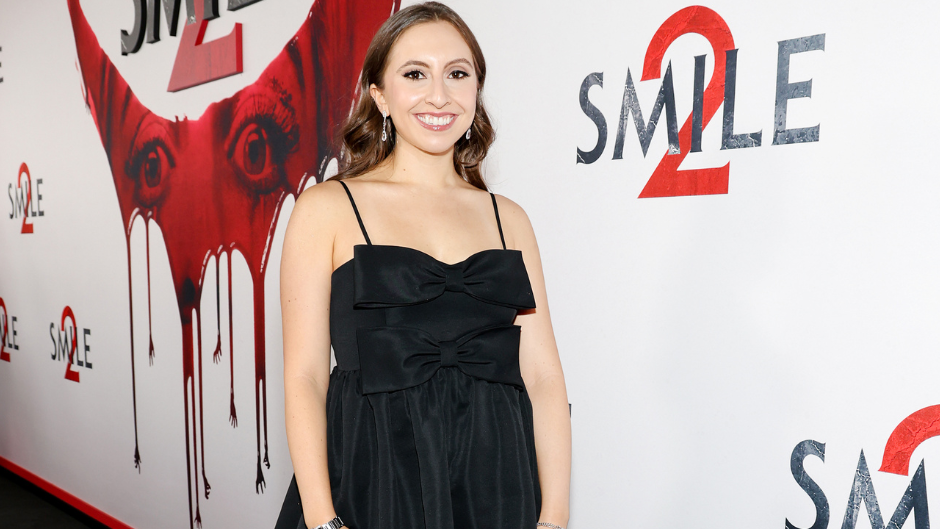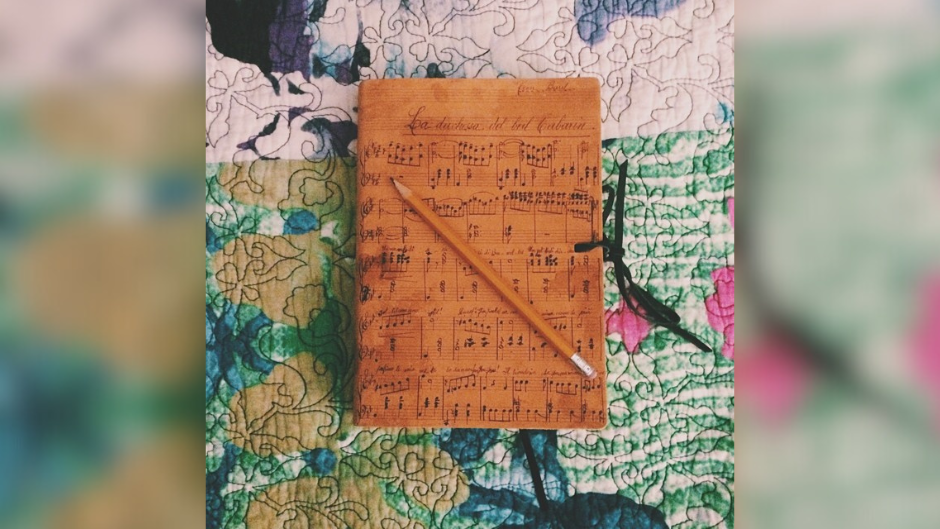As a little girl in Hollywood, Florida, Alexis Kesselman would make up songs about the car ride while riding in the family car. When she started voice and piano lessons at around six, she sometimes practiced with her own compositions.
“I was writing songs as soon as I knew what songs were,” Kesselman says. “It came so naturally to me that I thought everybody did it.”
The Frost School of Music took Kesselman, who graduated in 2019, from those childhood dreams to success as a songwriter and producer for pop music and film. She co-wrote pop-electro artist Joji’s monster 2022 hit “Glimpse of Us,” which was #1 on Spotify in the United States and globally, and wrote and produced four songs for the 2024 film “Smile 2.” She’s written and produced for major artists, including Brett Eldredge, Kelly Clarkson, and Suki Waterhouse.
Kesselman, whose artist name is Idarose, says the Frost School played a major role in fostering her talent and giving her the boundary-busting skill set and peer network that has enabled her to succeed on multiple fronts.

“It was such a huge part of my journey,” says Kesselman.
Raina Murnak, studio director of contemporary voice at the Frost School, recognized the teenage Kesselman’s gifts in teaching her at a Frost School summer camp: a keen musical talent combined with a formidable discipline and drive. “Even in the camp, it was evident she was talented, not just as a writer but on the business side,” says Murnak, who also directs the master’s program in popular music pedagogy and encouraged Kesselman to come to the Frost School. “She was always asking for more. It’s an unusual trait for people who are really young to think that seriously about the business they’re in.”
In high school Kesselman, the only child of two doctors, was torn between music and a conventional career. She sang in choir and wrote music for her peers in a school movie program, discovering a passion for film scoring. But she was also a high-achieving student, with one of the top GPAs at her academically elite school. “It tore me in two,” says Kesselman. “I loved school, loved math and English. All my friends were going to be doctors or lawyers or computer scientists. But music was my secret passion. I’d finish my homework, then go write a song.” She got into Columbia and Duke University. But music and the Frost School, where she was admitted early, won out.

At the Frost School, Kesselman’s world opened up. She majored in Media Scoring and Production (MSP) with a songwriting minor – building the combination of compositional and producing skills crucial for the commercial music world. She found mentors in Murnak; Dan Strange, assistant professor in the Modern Artist Development and Entrepreneurship (M.A.D.E.) program; and Carlos Rafael Rivera, director of MSP.
“At other places, everything seemed so specific; you could only do this,” Kesselman says. “Dan and Raina were always there for me when I felt like a class was not covering something. With Raina, I’d bring original music and say this is what I want to work on today.” She was inspired by Rivera’s Emmy-winning success writing scores for hit television series like “The Queen’s Gambit.” “He was such an example of how what we were doing could be a career,” Kesselman says. “To hear about his experience and down-to-earth take on the industry, that in New York and LA, this is how things could work.”
Kesselman also found crucial support in pursuing the male-dominated field of production, especially from Murnak, a powerful role model for many female students. “It was at the Frost School that I gained the confidence to sit behind the computer,” Kesselman says. “That was really important. I wanted to be known as a producer and a songwriter.”
Kesselman’s adventurousness and persistence, plus Frost School connections, opened doors for her talent. During her junior year she joined songwriting sessions at Audio Vision Studios, after owner Johnny Mars heard a song she wrote in class. That led to her being signed by EP Entertainment, which began flying her to LA to work with their artists there, giving her the courage to move to LA soon after graduating in 2019. There she co-wrote “Glimpse of Us” before the pandemic sent her home to South Florida. Discouraged, she briefly considered law school, but instead began collaborating on songs over Zoom and sharing her own songs on TikTok.
In early 2021, one of those songs, “When I Don’t Have You,” went viral, getting 2 million streams on Spotify. One of her Zoom collaborations, “F is for Friends,” was used for the Spongebob movie soundtrack. That same year, Kesselman (who’d somehow also found time to write a musical at the Frost School), longing to do a deeper kind of musical storytelling, headed to Berklee NYC to get a master’s in musical theater writing. She co-created a musical about a painter struggling between different life paths there.
Her own path took a drastic turn in the spring of 2022, just before she graduated, when “Glimpse of Us” exploded.
“It was insane,” Kesselman says. “Every goal I had as a songwriter for years happened in two days. It reached a billion streams. It went double platinum. There’s a lyric in the show, “They won’t stop calling,” and in rehearsals, my phone is blowing up.”

She signed with top music publisher Warner-Chappell. But it was a chain of Frost School alumni working in Hollywood that led to her writing for “Smile 2,” which Kesselman calls “one of the biggest things that’s happened in my career so far.”
“It’s such a network-based industry,” Kesselman says. “It just takes one connection out of hundreds you work with and send music to for it to work.”
Murnak, who’s stayed close to her former student, thinks Kesselman’s combination of musical craftsmanship and emotional awareness will continue to create success. “She knows how to paint an emotional picture – she’s good at harmonies, choosing chords, melody – good at all of it,” Murnak says. “She’s very empathetic and easy to talk to. Her original instincts are still there.”
As Kesselman reflects on how far she’s come and where she hopes to go next, she also finds herself returning to that little girl who couldn’t help expressing herself in song.
“When I went to LA, all I wanted to do was be part of the industry and contribute to what people wanted me to contribute,” she says. “I learned so much. At the same time, the songs people really liked were those I wrote by myself, channeling that 14-year-old girl at the piano going through something and writing a song about it. I had to learn to channel those feelings, but I’ve also learned how to get it done.”

